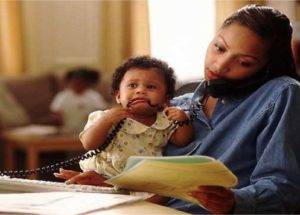Clear House Accountants

FRANCHISING – The Process and why effective Accounting matters?
For most entrepreneurs, being a franchise owner is an accomplishment that is quite desirable. You get to run the business on your own terms and evade the risks associated with starting businesses. Franchise businesses work by providing prospective customers with authentic systems for operation, management, training, advertising, marketing, and vendor contracts. In order to successfully run a business, one requires proper planning, excellent customer management skills, budgeting, and daily responsibilities. However, by working with franchised brands you will have the upper hand in that they already have; protected demographic data and protected territories. A customer base that is well established in essence, you can be certain there will be a demand for whatever product or service that you are planning to put out in the market, after all, they already have an established customer base.
What are the needs of a Franchise?
One of the most unique needs that franchises have is that of revenue reporting (Speak to a competitive Accountant to design your revenue reporting process). The franchise system consists of the Franchisor and the Franchisee. The Franchisor is just like the sole proprietor in that he owns the licenses, trademarks, and rights to the business, products or brand. Only he has the authority to grant a license to third parties, in this case, the Franchisee. Once the license is granted, the Franchisee (also known as the licensee) can now conduct his business using their services, brands, and other proprietary products. As much as franchisors own all the rights to the business, they rely upon the individual to grow each location through various business operations.
What are Franchisees?
The franchisee is the person that holds the franchisor’s license for an agreed period of time. The terms of this contract usually vary among different organizations. During this period, the franchisee shall hold the franchisor’s license for the use of the latter’s trademark and be granted complete right- to-use in the conducting of business as permitted by the franchisor.
One of the features of the license is that it prevents the encroachment of another franchisor within that area of business. This, therefore, ensures that the conditions under which the franchisee is expected to conduct business shall be competition-free which ensures optimum profits to both franchisor and franchisee. Due to this benefit, the licensee pays a franchisee fee as well as advertising fees.
Certain guidelines or terms must be set by the franchisor which the franchisee is required to comply with. Other than this, discounts or assessments may add to or subtract from top line sales, eventually affecting the loss statement and gross sales on profit. This data needs to be captured properly and reported for HMRC compliance as well as franchise compliance, Franchisors will provide you with a set standard of reporting needs which you will need to speak to your Accounting firm about to implement. It is also important since it will present an accurate reflection of sales and expense data during the evaluation process. When it comes to the balance sheet, liabilities and assets of a business, they need to be listed properly so that the owners can use this information during the end- of-year tax deductions. For instance, both tangible and non-tangible assets are deductible over a certain period of time so as to lessen the tax burden on that business. A common mistake is the failure to capture this data or worse, placing them incorrectly on the profit and loss statements.
Incorrect data can cause a chain of problems when generating tax returns. It may lead to:
- wrong analysis of business sales
- procurement of fewer funds from lenders (more funds can be procured if the data analysis is correct)
- improper valuation of the business for purposes of bringing in new
- Investigations and penalties by HMRC
It is advisable to have a Franchise Accountant who is fluent with franchise accounting and who will be able to guide you in the setup of effective controls and systems.
Are there starting fees for franchises?
Franchises usually have start-up fees for the duration of the contract. This fee will cater for location scouting, training, signage, equipment, and opening assistance. The total cost will be dependent on the type of business that is to be established. For instance, a food franchise may range between
£5000 – £10,000. Of course, other factors such as the location will also determine the final price. For Subway restaurants, the net worth is around £30,000 (on the higher side) and so an investment of approximately £80,000 will be required. On the other hand, in order to open establishments such as McDonald’s Restaurant or Taco Bell you need at least £750,000 of liquid assets and a net worth of at least £2 million. Other bigger restaurants such as Wendy’s require you to have at least £5 million.
What is the Difference between Royalties and Franchise Fees?
Once the franchisee begins running the business, he must pay a certain portion of his revenue to the franchisor. This is the royalty fee. Basically, it covers the operational costs of the business. Royalties are paid weekly although this may sometimes be subject to change depending on the agreement between the franchisor and franchisee.
In a franchise agreement, the franchisor usually has access to the franchisee’s checking account and can make withdrawals. Franchise fees are those which shall cover necessities such as legal advice and training throughout the year.
Why Should you always use a Qualified Franchise Accountant?
In order for the business to thrive, the franchisee will need proper strategies when it comes to resource planning, cashflow and reporting so as to ensure optimum performance and eventually, maximized profits. A qualified accounting firm is best suited to come up with a plan which will not only improve the bottom line but can also help reduce employee turnover, increase job satisfaction, and productivity.
Stick to your Budget
Owning a franchise requires you to be aware of the company’s expenses such as franchise fees. Just like in any other business, you will most likely incur unexpected expenditure such as facility repairs or working overtime of some employees. Having knowledge of which of these costs will fluctuate or which of them you are likely to incur regularly will enable you to plan well for unforeseen circumstances and ultimately stick to your budget. The franchise accountant will also come in handy here in that he can do a financial projection that anticipates cash flow requirements to cover unpredicted events.
What is our Conclusion
In this era where there is so much competition in starting and actually running thriving businesses, franchise chains have been able to relieve the entrepreneur of the burden of having to advertise, train its workers or even scout locations. Before getting into a contract with a franchise establishment, it is recommended that you first take time to research on it and see if its terms of the contract will be favorable to you. If done correctly Franchises can have huge potential and unimaginable returns, however, if you are jumping into buying a franchise without doing your homework, you can be in for a world of pain and stress. Whatever you do make sure that you have done your research on the risks, the opportunities and the rewards.
Clear House Accountants are specialist Accountants in London who have years of experience working with a number of Franchise Businesses. We have helped franchisees and franchisors setup effective controls and measures to improve transparency and make reporting easier. We have also helped franchisees review financial plans for potential franchise opportunities and review the financial risks that come with not being able to keep up with a franchisor’s contractual terms. Speak to us to learn more.














